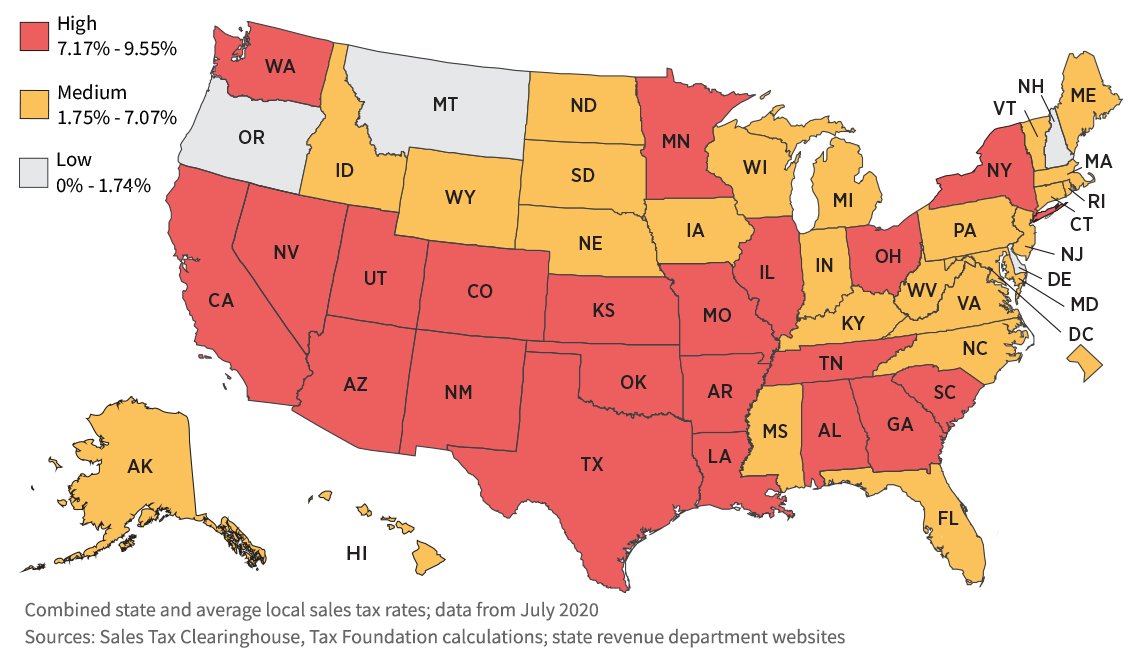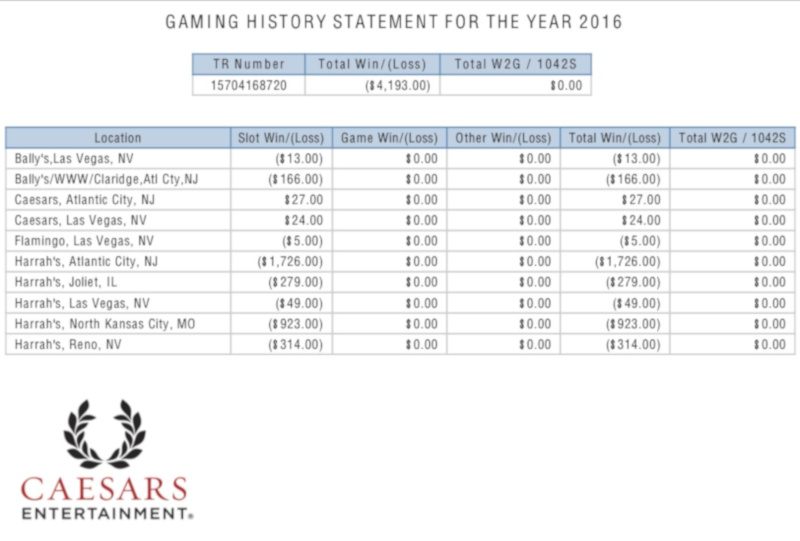- Oklahoma Gambling Tax Rate Certificate
- Oklahoma Gambling Tax Rate Increase
- Oklahoma Tax Rate On Gambling Winnings
- HOW TO FILE YOUR TAXES ON GAMBLING WINNINGS IN OKLAHOMA FROM REAL CPA on this episode of RED SCREEN NINJAS! What do you do after winning a jackpot on a slot.
- Oklahoma State Gambling Tax, Gambling Excise oklahoma state gambling tax Tax RCW 9.46.110 sets the maximum rates nina blackjack instagram at which cities, towns, and counties may tax gambling activities. Pala Casino Restaurants Ca.
The Oklahoma income tax has six tax brackets, with a maximum marginal income tax of 5.00% as of 2020. Detailed Oklahoma state income tax rates and brackets are available on this page.
Lottery players beware: Federal and state income taxes could eat as much as 42 percent of your winnings.
Even worse, if you win a large prize and die before seeing the cash, your heirs' tax bill could exceed 90 percent.
That message came Wednesday during a Webcast seminar for Oklahoma lawyers on how to represent lottery winners and retailers.
Presenter Susan Shields, an Oklahoma City attorney, said the federal and state income tax rates on lottery winnings can hit 35 percent and 7 percent, respectively, depending on the prize amount, for a total tax bite of 42 percent.
Under federal law, the Oklahoma Lottery Commission must withhold 25 percent of winnings on prizes exceeding $5,000, Shields said.
These provisions most likely will affect winners of the multistate Powerball game and large Oklahoma based online games.
The most recent Powerball winner, for instance, was an Air Force sergeant from New Mexico who won $93.4 million.
Such winners have a choice: the entire prize paid as an annuity over many years, or a much lower lump sum in this case, $52.2 million.
Shields said many winners choose the lump sum for tax reasons.
For instance, if a Powerball winner dies, his heirs would be subject to a 47 percent estate tax, plus 42 percent in combined income taxes, plus interest, she said.
'That is a pretty bad result for the winner ... but also for his family, who won't inherit very much, Shields said.
The annuity option in such a case leaves the heirs even less, she said.
Here's the good news, Shields added almost half jokingly: The cost of the winning ticket is tax-deductible.
Unlike Texas and some other states, Oklahoma doesn't allow a winner to sell his lottery annuity to a brokerage house or even to assign it to a relative without a judge's order, she said.

However, Oklahoma's lottery law allows the commission to garnish prize money from winners who owe debts and to deduct delinquent child support payments.
'This may be a reason someone might not want much publicity about winning, Shields said.
She said Oklahoma lottery winners who subsequently divorce would have to split the money.
Presenter Armand Paliotta said the application process for retailers hoping to sell lottery tickets is 'fairly burdensome.
Oklahoma Gambling Tax Rate Certificate
They must disclose all owners, officers and operators and notify the Lottery Commission of ownership changes.
Retailers also must be current in state tax filings and payments and cannot have a felony conviction.
Paliotta advised lawyers to have clients sign the back of any large winning ticket.
'That would prevent someone else who finds it from cashing it, he said.
Although lawyers will want to help their clients remain anonymous for various reasons, that will be easier said than done, Paliotta said.

However, Oklahoma's lottery law allows the commission to garnish prize money from winners who owe debts and to deduct delinquent child support payments.
'This may be a reason someone might not want much publicity about winning, Shields said.
She said Oklahoma lottery winners who subsequently divorce would have to split the money.
Presenter Armand Paliotta said the application process for retailers hoping to sell lottery tickets is 'fairly burdensome.
Oklahoma Gambling Tax Rate Certificate
They must disclose all owners, officers and operators and notify the Lottery Commission of ownership changes.
Retailers also must be current in state tax filings and payments and cannot have a felony conviction.
Paliotta advised lawyers to have clients sign the back of any large winning ticket.
'That would prevent someone else who finds it from cashing it, he said.
Although lawyers will want to help their clients remain anonymous for various reasons, that will be easier said than done, Paliotta said.
Archive ID: 2644860
Gambling and the Law®: By Professor I Nelson Rose
The Internal Revenue Code is unkind to winners -- and it doesn't much like losers, either. The federal government taxes gambling winnings at the highest rates allowed. So do the manystates and even cities that impose income taxes on their residents. If you make enough money, in a high-tax state like California or New York, the top tax bracket is about 50 percent. Out ofevery additional dollar you take in, through work or play, governments take 50 cents.
Of course, the tax-collector first has to find out that you have won. Congress and the Internal Revenue Service know gambling is an all-cash business and few winners indeed wouldvoluntarily report their good luck. So, statutes and regulations turn the gambling businesses, casinos, state lotteries, race tracks and even bingo halls, into agents for the IRS.
Big winners are reported to the IRS on a special Form W-2G. If winnings are to be split, as with a lottery pool, winners are reported on a Form 5754.
Pooling money to buy lottery tickets is common among employees and friends. But whether there are two or 200 in the pool, there is going to be only one winning ticket, and somebody has toturn it in. If you are that someone, make sure you fill out a Form 5754. If your share of a $5 million prize is $1 million, you do not want to be stuck with paying income tax on the entire $5million.
Gambling has become such big business that the IRS receives nearly four million Forms W-2G and 5754 each year. This tells the tax-collectors that nearly four million big winners are outthere, waiting to be taxed.
But the IRS does not always wait. The government wants to make sure it gets paid. What good does a W-2G do if the winner is a foreigner who is going to be in his own foreign country whenApril 15th rolls around?
So, the IRS not only wants reports filed, but often requires that a part of the winnings be withheld. As anyone who has a salary knows, withholding also allows the government to usetaxpayers' money for many months, without having to pay interest.
The withholding rate for nonresident aliens is 30%. Not coincidentally, the tax rate for nonresident aliens is also 30%. So, if a citizen of a foreign country wins $1 million cash at aslot machine in Las Vegas, he will find he is only paid $700,000. The remaining $300,000 is sent to the IRS. The foreign citizen is unlikely to ever file an income tax return, but the IRS getspaid in full anyway.
Citizens of foreign countries are also, of course, usually taxed by their own governments. So some countries have treaties with the U.S., which protects those foreigners from having topay the 30% withholding to the IRS.
U.S. citizens and resident aliens have it both better and worse than nonresident aliens. The withholding rate for gamblers living in American is only 28% (it was 20%, up to1992). Having the IRS take $28,000 out of a jackpot of $100,000 is painful. But, it can hurt even more when tax forms are filled out. There is no 30% maximum tax for people living in the U.S.,and really big winners often end up paying a lot more than 28% or 30%.
The one good news is Nevada casinos were also able to convince the IRS that they could not keep track of players at table games. They said that when a player cashes out for $7,000,they do not know whether he started with $25 or $25,000. So it is actually written into the law that there is no withholding or even reporting of big winnings to the IRS for blackjack,baccarat, craps, roulette or the big-6 wheel.
There is another general IRS rule that says anyone paying anyone else $600 in one year is supposed to file a report. The IRS has been going after casinos and cardrooms that runtournaments, forcing them to file tax reporting forms on grand prize winners. Here the IRS has the very good argument that the operator knows exactly how much a player has paid to enter thetournament and how much the finalists are given.
Is there anything a winning player can do to lower the bite of the income tax? And what about those who gamble and lose? Which is everybody, occasionally. The law does allow players totake gambling losses off their taxes, but only up to the amounts of their winnings.
Of course, if you win, say $135,000, you can take off all gambling losses, up to that amount. If you gambled away, say $65,000, you would only have to pay taxes on the remaining, let'ssee: $135,000 minus $65,000 equals $70,000. The tax on $70,000 is a lot less than the tax on $135,000.
Oklahoma Gambling Tax Rate Increase
Of course, you have the small problem of proving that you actually lost $65,000. Large winnings may be required to be reported to the IRS; large losses are not.
One former IRS Revenue Officer, who quit government to open his own small tax preparation firm, thought he found the answer. One of his clients won a share in a state lottery: $2.7million, paid out over 20 years in installments of about $135,000, before taxes. The winnings were reported, but the tax return claimed gambling losses of $65,000. The IRS decided that $65,000was a lot to lose, and it sent an agent to conduct an audit.
The tax preparer found a man with an extremely large collection of losing lottery tickets and made a deal: he would borrow 200,000 losing tickets for a month for $500. The losing ticketswere bound in stacks of 100 and shown to the IRS auditor: 45,000 instant scratch tickets, 5,000 other Massachusetts lottery tickets, and 16,000 losing tickets from racetracks throughout NewEngland. So many losing tickets, that it would have been physically impossible for one man to have made these bets. The New York Times called it, 'one of the more visibly inept efforts at taxfraud.' They pleaded guilty eight days after being indicted.
By the way, the man who rented the tickets was not charged. It's not a crime to collect losing lottery tickets, only to use them to try and cheat the IRS.